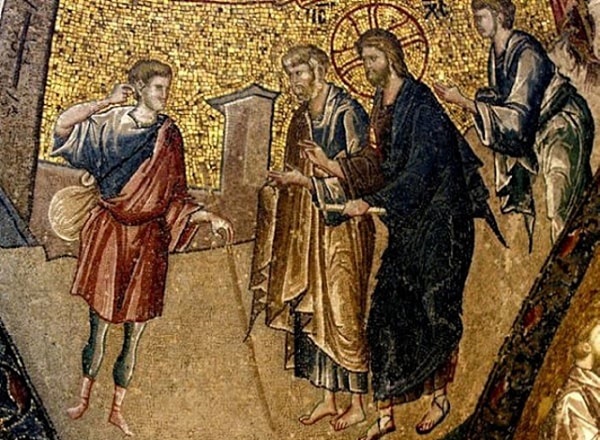The transcendent as the objective of the Christian life
28 November 2022Thirteenth Sunday of Luke and Jesus Christ teaches us how we can gain eternal life. The occasion for what today’s Gospel reading teaches us is provided by a Jew who appears to have been a most diligent observer of Jewish law.
This rich lordling, then, approached humanity’s great teacher and asked to be told the way in which he might share in eternity. Since he had a Jew before him, Christ referred him to Jewish law, which he hadn’t come to abolish but to fulfil and to give it new impetus and value. Specifically he told the young man to keep the well-known commandments: do not commit adultery; do not commit murder; do not steal; do not bear false witness; and honor your father and mother.

Jesus’ answer, however, didn’t satisfy the Jew, who declared that he knew and observed the commandments of the law, and had done so from an early age. Jesus immediately seized upon this declaration of self-reliance on behalf of the excellent Jew, in order to transcend the law. He heard the man express this certainty and self-reliance regarding his way of life and then pointed out what remained to be done if he wanted to be saved. This wasn’t something taught by the law.
The Jew was quite rich and Jesus invited him to distribute his wealth to the poor and become a real follower of his. To put it another way, he proposed transcendence of the self as a way of being saved. This isn’t at all easy. It’s as if Christ advised a singer who worshipped music and song to stop being involved with them; to abandon them for something far superior to music.
After this conversation, the Jew was greatly saddened, since he couldn’t take up the cross, as Jesus suggested. And it really was a cross, since it transcended his way of life. So we see that the Jewish law stops where the new law of Christ begins, the law of transcendence. Our salvation isn’t assured by the law of the Old Testament and its commandments. Jewish law was excellent for its time, when it didn’t yet face competition from Christian law. The law brought by Christ is greatly superior as regards what it offers. The law of the Old Testament produced good people, whereas the law of Christ elevates us to the level of sanctity.
It was precisely this path the rich young man who spoke to Christ was unable to tread. Reason was turned upside down and the things which the world considered desirable and well-pleasing were discardable and negative in the rationale of Christ. Gaining a place in eternity requires us to sacrifice many of the things we love and to which we’re deeply attached.
Christ proposes not merely a new moral code for us in his Gospel but the transcendence of our earthly limits. And this is true not only of the rich but of all of us who know existentially what we need to overcome in life if we’re going to meet the transcendent Christ. Some might have to overcome their wealth; others their gluttony; others their avarice, others their sensuality, and all of us whatever weakness we have.






